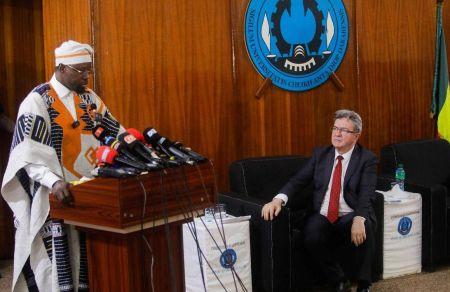
Senegal is reassessing its ties with France, waving the possibility of closing French military bases and criticizing the liberal pro-LGBT right policies of the West.
The remarks were made by Senegal’s Prime Minister Ousmane Sonko in a joint press conference with French leftist politician Jean Luc Melenchon, as he also criticized the French control over the West African currency CFA.
“More than 60 years after our independence … we must question the reasons why the French army for example still benefits from several military bases in our country and the impact of this presence on our national sovereignty and our strategic autonomy,” Sonko said.
France, which has 350 troops in Senegal, has been expelled from Niger, Mali and Burkina Faso by military rulers there who took power after successive coups.
“I reiterate here the desire of Senegal to have its own control, which is incompatible with the lasting presence of foreign military bases in Senegal … Many countries have promised defence agreements, but this does not justify the fact that a third of the Dakar region is now occupied by foreign garrisons,” he said.
Sonko also expressed dissatisfaction with the euro-pegged Franc CFA, urging a flexible currency. His President Faye has promised to abandon the CFA altogether.
The Senegalese prime minister also reiterated plans to renegotiate oil and gas deals, as Senegal braces to join hydrocarbon procuring countries with the beginning of exploitation of offshore gas.
Criticizing the West’s attempt to export its model of LGBT rights, Sonko said “Senegal and many other African countries cannot accept any truth in legalizing this phenomenon.”
